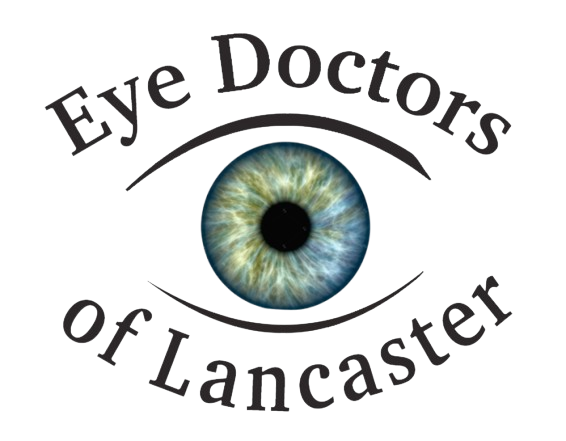Dry Eye
At Eye Doctors of Lancaster, we have devoted our lives to helping people see their very best and we are dedicated to providing all our patients the highest standard of eye care.
Dry Eye
Dry Eye Syndrome (DES) is a disease which effects over 15 million people in the United States. DES is one of the most common complaints for which people seek care from an eye doctor.
Symptoms include:
- dryness
- grittiness
- itching
- burning
- light sensitivity
- foreign body sensation
- general discomfort
- eye fatigue or tired eyes
- blurred or fluctuating vision
- watering, excessive tearing
Dry eye syndrome is a condition that happens when your eyes don't produce enough tears or when the tears evaporate too quickly. Tears are important because they keep your eyes moist, help them heal, and protect them from infection. When someone has dry eyes, they might feel like something is in their eye, or it might feel scratchy or gritty. Other symptoms include redness, blurry vision, and sometimes a burning or stinging sensation. Dry eye syndrome can be caused by many things, such as aging, certain medications, or long periods of staring at a screen, like a phone or computer. People who wear contact lenses may also be more likely to get dry eyes. It can be more common in women, especially after menopause, because of changes in hormones. Dry eyes can also be triggered by environmental factors like wind, smoke, or dry air. Although ceiling fans and air conditioners can improve one’s overall comfort, these often exacerbate dry eye. Similarly, CPAP devices--although extremely important for overall health for patients with obstructive sleep apnea--can sometimes worsen dry eye symptoms. Some people with autoimmune conditions like thyroid disease, Sjögren’s syndrome, lupus, and rheumatoid arthritis are more prone to dry eyes. The eyes are also affected by a poor diet, not drinking enough water, or even not getting enough sleep. To treat dry eyes, doctors may recommend eye drops or special gels that help keep the eyes moist. In some cases, people may need medications or even procedures to help their tear ducts work better. It’s important to take breaks from screens and blink more often to keep the eyes healthy. Drinking plenty of water and using a humidifier can also help keep your eyes from getting too dry. If dry eyes aren’t treated, they can lead to more serious problems, so it's important to see an eye doctor if you have symptoms.
Meibomian Gland Dysfunction (MGD)
The quality of a patient’s tear film is important for clear, crisp vision. The tear film is made up of a lipid (oil) layer, an aqueous (watery) layer and a mucus layer. Deficiency of the lipid layer caused by meibomian gland dysfunction (MGD) is the most common cause of DES, called evaporative dry eye. Meibomian gland dysfunction is a condition where the small oil-producing glands in your eyelids, called meibomian glands, don’t work properly. These glands are important because they produce oil that helps keep your tears from evaporating too quickly. When the glands aren’t working right, it can lead to dry eyes and discomfort. The oil in your tears is needed to form a protective layer over your eyes, and without it, your eyes can become dry, irritated, and red. In some cases, the Meibomian glands can get blocked, making it harder for the oil to be released. Treatment for MGD often involves applying warm compresses to the eyelids to help loosen any blockages. Doctors might also recommend special eye drops, ointments or nutritional supplements such as omega-3 fatty acids to help with healthy oil production. In some cases, people may need a procedure where the doctor clears the blocked glands. Maintaining good eye hygiene, like cleaning your eyelids regularly with a commercially-available lid scrub, can also help prevent MGD. If you have symptoms of MGD, it’s important to visit an eye doctor for a proper diagnosis and treatment plan. Taking care of your eyes can prevent long-term damage and keep them feeling comfortable.
Treatment of Meibomian Gland Dysfunction (video)
iLux
iLux is an advanced medical device designed to treat Meibomian Gland Dysfunction (MGD). The iLux system works by applying controlled heat and gentle pressure to the eyelids, helping to unclog the meibomian glands. This process allows the natural oils to flow again, which improves the quality of the tear film and reduces dryness. One of the main benefits of iLux is that it targets the root cause of dry eye rather than just relieving symptoms.
The treatment is quick, usually lasting around 10 to 15 minutes, and is done right in our office. Numbing drops are applied to the patient's eyes and each of the four eyelids are then treated individually. Most patients experience minimal discomfort and report feeling relief shortly after the procedure. Unlike daily eye drops, iLux offers longer-lasting results, often for several months.
Continued maintenance treatment at home with the use of warm compresses and high-dose oral omega-3 fatty acids can help to keep meibomian glands functioning properly. This can reduce the need for frequent treatments or medications. Many people also experience improved vision and less redness or irritation. The device is FDA-approved and considered safe and effective by eye care professionals. It is a non-invasive alternative to more intensive treatments. iLux can also help prevent further damage to the eye’s surface caused by chronic dryness. Patients often report better quality of life after receiving treatment. Overall, iLux is a reliable option for managing dry eye disease from MGD and maintaining healthy, comfortable vision.

